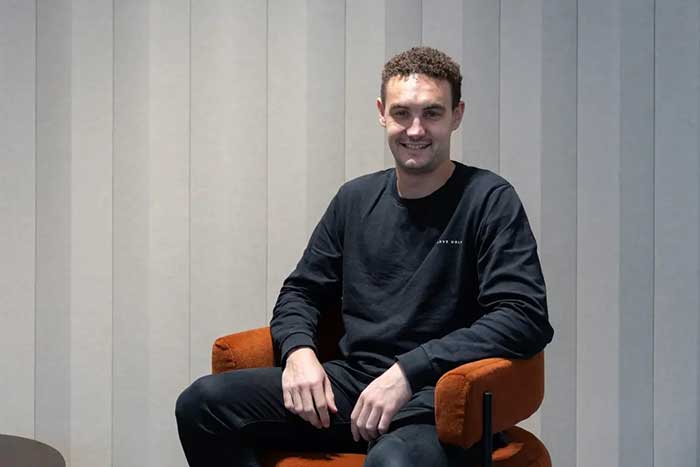Our products are thoughtfully designed with a strict focus on sustainability guiding our team’s decisions. Carefully selecting the materials used, shape variations in a range, and installation method are just a few stages in the complex product development process. When you look at a refined and sophisticated acoustic system such as Lanes, it can be easy to forget the process that is involved in its creation. It took the effort of a large global team of our designers to get to the result that we see today. To gain an insight into what this involved, we talked to senior designer, Sean Stirling, who played a pivotal role in bringing Lanes to life. Here is what he had to say:
What was the initial idea that led to Lanes?
Lanes is a great example of our team pairing our sustainable values with a constant push for new innovation. Sustainability, along with performance, was a huge consideration throughout the creation of Lanes. At Autex Acoustics, sustainability has been a part of our core values for decades and impacts every part of our business. As designers, we have to recognise that not everything is permanent in the commercial space, so our solutions need to be able to be removed with as little impact on the environment as possible. We were constantly thinking about the end of the life of the product. The more glue and permanent fixings we could remove, the better. This thinking resulted in the innovation of a unique clipping system with no glue in the installation process, meaning that Lanes is designed for disassembly.
What challenges did the team face when designing Lanes?
The hardest part is transitioning an idea into a functional product. There were around five to six variations of Lanes before we had settled on the best solution. This required refining the look and method of creation to ensure it continued to meet our objective, a sustainably focused, easy to install acoustic solution. We went through a lot of testing and trial and error to get to where we are now. Having our concepts properly tested with clients and installers allowed for our team to gain valuable insight into any changes we needed to make. This market feedback was crucial to Lanes being a success.
How did you account for high acoustic performance/NRC?
We decided to utilise air gap technology to ensure this solution could provide superior acoustic performance. We worked with our acoustic testing partners and fire compliance to come up with the best compromise. While we had a great idea on paper, we needed to make sure that our final product was high quality and easy to use in projects.

How do you think Lanes is most impactful?
I think that Lanes is fantastic when it can be used in longer length panels and be a feature piece within a room. Aesthetically, it is awesome and performance wise, when you’ve got a lot of sound hitting it, that is when it performs at its best.
What benefit does Lanes have for the occupants of a space that they are installed in?
Acoustically, it performs really well and makes the space a much more pleasant place to be in. It is a statement piece to show off and create a real ‘wow’ factor indoors. This is a product that has so much potential for high end office spaces, lobbies, and atriums. It can also be easily removed and reused if occupants decide to remodel or redesign their space.
How is Lanes game changing in our industry?
This is the start of the no glue revolution, which is coming to all industries. Everything needs to be designed for disassembly and with end of life in mind. That’s exactly what Lanes is, a game changer in sustainable product design. This is a great starting point for our industry as it shows the impact we can have when effectively designing around a product’s life cycle, from start to finish. We are always looking for new ways to do things and continue to improve and encourage others in our industry to do the same.

